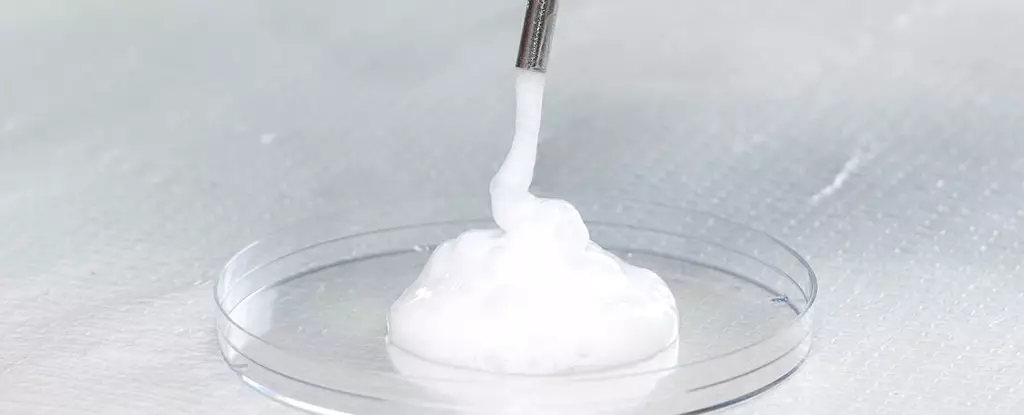In a groundbreaking discovery, researchers have identified an unexpected correlation between smoking and improved outcomes for cancer patients undergoing treatment. This finding has led to the development of a novel approach to cancer therapy, involving the use of foam infused with carbon monoxide (CO). Initial tests on mice and human tissue have shown promising results, with significant reductions in tumor growth and progression. This discovery could potentially revolutionize cancer treatment and provide an effective way of combating tumor spread.
Previous studies have revealed that cancer patients who smoke have better responses to a treatment aimed at restricting a process called autophagy, which promotes cancer cell growth. While inhibiting autophagy has shown mixed results in non-smokers, smokers have demonstrated a robust decrease in target lesion size when receiving autophagy inhibitors. This led researchers to hypothesize that carbon monoxide, present in higher levels in smokers’ bodies, may play a key role in blocking autophagy and killing cancer cells.
Using a unique technique for creating Gas-Entrapping Materials (GEMs), researchers developed a safe-to-drink foam infused with carbon monoxide. The foam was tested on cancerous human and mouse lab cells, as well as mice with pancreatic and prostate cancers, in combination with autophagy inhibitors. The dual-action treatment resulted in significant reductions in tumor growth and progression in the animal models. Furthermore, similar results were observed in human cancer cells cultured in petri dishes.
While further research and clinical trials are necessary to validate these findings, the results thus far are promising. It is crucial that any treatments developed are safe for consumption, as inhaling carbon monoxide is considered hazardous. However, once the underlying mechanisms behind these treatments are fully understood, it is anticipated that they can be refined to ensure safety. Moreover, the researchers believe that the approach may be applicable to other types of cancer, opening up new avenues for combating tumor spread.
The findings from this study have significant implications for the field of cancer therapy. The use of carbon monoxide-infused foam, in combination with autophagy inhibitors, could potentially enhance the effectiveness of treatment across various types of cancer. The safe delivery of therapeutic levels of carbon monoxide using GEMs offers a promising new avenue for improving therapies for numerous cancers. By harnessing the benefits observed in smokers, researchers aim to develop a therapeutic platform that can maximize the anti-cancer effects of carbon monoxide.
While this novel approach to cancer treatment shows tremendous promise, there is still much work to be done. Further research is required to fully understand the mechanisms involved and to ensure the safety and effectiveness of these treatments. Clinical trials will be necessary to validate the observations made in animal models and cell cultures. However, the potential for a new and effective way of reducing tumor growth and spread is within reach.
The discovery that smoking can improve outcomes for cancer patients undergoing treatment has paved the way for a novel approach to therapy. By utilizing foam infused with carbon monoxide, researchers have achieved significant reductions in tumor growth and progression in both animal and human models. While further research is necessary, these findings offer hope for more effective cancer treatment strategies. With continued scientific exploration and clinical trials, this approach could one day become a valuable tool in the fight against cancer.


Leave a Reply